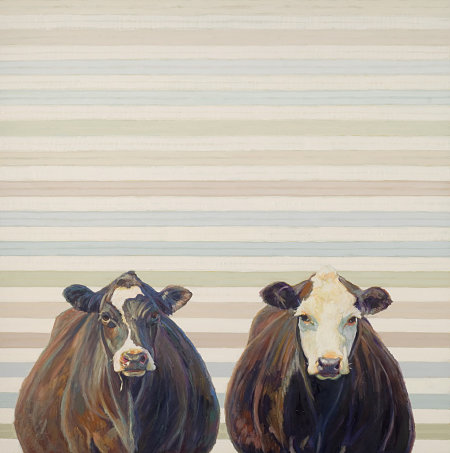
The Piano Room
They have been dating for months. Not dating exactly. Lunches, dinners. Regular retreats to the pied-á-terre his firm leases for the use of its out-of-town clients and those suburb-residing partners who need to spend an occasional night in town. “Our hideaway,” he calls it. No movies or museums. Just eating and hiding away. As if one led organically to the other, the intake of food for energy, the release of energy. It happened almost without her knowledge, that slide into the parallel life, not hers exactly, but one running alongside hers. A glittering surface underfoot slick as ice, and there she was. Cardboard shapes sprang up around her, life-sized replicas of the places they frequented: firm, restaurant, pied-á-terre. Stage sets to be demolished the moment they left, reconstructed instants before they returned. A year of this, or just under, ten months, is it? with the working man.
“I’ve worked,” she says out of the blue. Her voice high-pitched and trembly, not a voice that is her own. “You think raising a child, staying with a man for twenty-five years, isn’t work?”
Surprise spreads over his face like a rash.
“Jenny, I didn’t mean—”
“No, of course not.”
She knows he didn’t. No more than she did. The statement was altogether without meaning. She doesn’t know why she made it. The only explanation is she didn’t. The person who walks by her side, sits in chairs alongside hers, and uses a high-pitched, trembly voice purporting to be her own has made that statement.
“Come,” he says, and places his large hand over hers. Immediately, she rises from the table. He can always bring her back to herself with a touch, or close to what she supposes is her self, now.
The pied-á-terre comprises a floor-through on the second floor of a brownstone on East 53rd Street, not far from Leland’s office. The windows open to the humming sounds of traffic on the street below. By day the sounds are insistent, urgent, a barrage of blaring horns, occasionally accompanied by shouts from an irate driver. Come on, move it, will you? What’s the hold up? At night—those rare nights when Leland, having made the excuse of a work session that would go late or an early-morning court date, can get away and spend the night—the sounds are softer and more mysterious. Though sometimes loud enough to jolt her awake as when the quiet is punctured by the wail of a police siren or ambulance. They never meet anyone on the stairs, going up or coming down. A year now…ten months?... and no encounter on the stairs. But of course there wouldn’t be. It is a stage set, a cardboard façade, not an actual brownstone with actual people living in it.
I’ll never leave you, she and her husband had promised one another. Allowances had to be made for her adjustment to the breaking of that promise. But the more time went on and the more she thought about it, the more she came to realize that it could not have been the man who sat at his piano and daily welcomed her who had left her, but some other man entirely. Some man whose features had all but faded now.
*
The attraction she feels for Leland is powerful enough to make her dress in a suit that is not really to her taste and to buy two others like it so as to present the proper picture when she meets him at his office. The money she was left in the will and from the life insurance—Left? Life insurance? Will? Herself a widow?—provided her with sufficient funds to have any life she might desire and buy whatever clothes would best complement that life. Her husband was a renowned concert pianist. His lifetime at keyboards in concert halls across the world left her well provided for. Again, left? When he promised never to? But, no, that was wrong. That was the mistake that had been made.
With Leland, lovemaking is conducted almost entirely in silence. It is raw. Pure appetite, performed in a fever of desire. A fever, yes. She must be ill, out of her mind, possibly hallucinating. Certainly, she isn’t herself. Some other person is reaching her arms across this man’s broad, sweating back, opening her legs wide, so wide, on his hips. She herself, her real self, could never, would never behave in such a fashion. But how can she know? Even now, this instant, in the midst of it, there is no way to prove beyond all doubt that she is not the one doing this.
